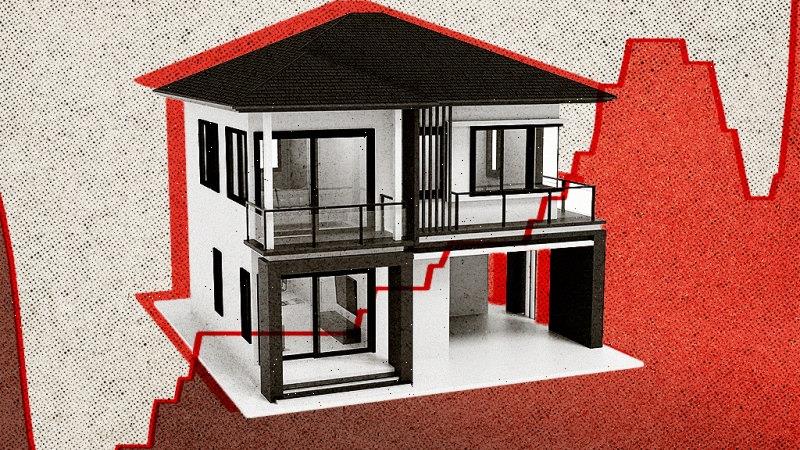The Reserve Bank has lifted the official interest rate to fresh 10-year high of 3.35 per cent as it continues to fight inflation pressures.
The quarter of a percentage point move is a record ninth consecutive increase to the official cash rate by the RBA board. The central bank began raising rates in May last year, when the cash rate was at a historic low of 0.1 per cent.
The bank, which is due to reveal new economic forecasts later this week, has driven up interest rates at a record rate in a bid to reduce the nation’s inflation pressures.Credit:Nicholas Rider
On a mortgage of $750,000, the increase – if passed on in full by commercial banks – will add $116 to monthly repayments. Since the Reserve started lifting rates, the monthly repayments on a $750,000 mortgage will have climbed by almost $1400.
The bank, which is due to reveal new economic forecasts later this week, has pushed up interest rates at a record rate in a bid to reduce the nation’s inflation pressures.
Inflation rose by 7.8 per cent last year, the steepest increase since 1990, driven by higher costs in housing, energy, food and travel.
The bank’s actions are continuing to weigh on the nation’s consumers. The ANZ-Roy Morgan weekly measure of consumer sentiment fell 3.2 per cent over the past seven days, the single largest decline since August last year.
Senior ANZ economist Adelaide Timbrell said inflation and the effort to bring it down were hitting consumers.
“Confidence about current and future finances fell sharply, perhaps sparked by concerns about the extent of cash rate rises after the December-quarter inflation result,” she said.
Ahead of the Reserve Bank’s decision, Treasurer Jim Chalmers said reining in inflation was the government’s number one focus.
“Responsible cost-of-living relief, dealing with workforce shortages and issues in supply chains, at the same time as we show spending restraint. These are the three best ways to deal with the inflation challenge in our economy,” he said.
Chalmers said one of those cost-of-living measures was targeted relief for low-income earner energy bills, which will come in the May budget. The government is also capping domestic wholesale gas prices and the states have agreed to cap coal prices to keep energy bills down.
“Now the most important thing to recognise here when you hear the opposition bleating about cost-of-living pressures is that they voted against relief for people in their energy bills,” Chalmers said on Tuesday morning.
“Remarkably, they put their hand up and said that Australians and small businesses do not need or deserve the sorts of energy bill relief that we’ll be providing in the May budget. I think that speaks volumes about them.”
Earlier on Tuesday, shadow treasurer Angus Taylor said Australians were struggling with the cost of living, and any additional increase in interest rates would cause more pain for mortgage holders, and the future trajectory of inflation was unclear.
“What we do know is that Australians are copping a lot of pain and they need a government that has their back and makes this an absolute priority and that’s what we’re asking for right now,” he told ABC Radio’s RN Breakfast.
More to come
Most Viewed in Politics
From our partners
Source: Read Full Article

